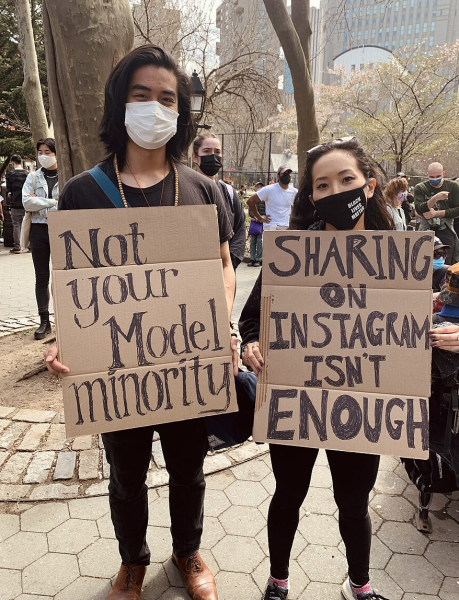Why excuses for the wage gap are problematic
Its ubiquity in society is not a reason to shrug it off
March 24, 2021
Today is Equal Pay Day, and this year’s theme is “March Madness: The Pay Gap is Madness.” According to equalpaytoday.org, “Women’s Equal Pay Day marks the day into the year on which it takes for women on average to earn what men did in 2020” — in other words, 15 months.
The gender wage gap, which denotes the difference in pay between women and their male counterparts, originates from sexism built into America’s foundation. Many have invalidated this claim, citing the Equal Pay Act of 1963; however, this misconception is extremely problematic. It’s important to understand that the wage gap still exists, and excuses made about the wage gap’s existence are harmful and are rooted in sexism in America. Excuses about the wage disparity between men and women are unnecessary and often stereotypical.
To help close the wage gap once and for all, these arguments need to be aired out and understood.
“It’s because of maternity leave.”
The US is the only Organization for Economic Co-Operation and Development (OECD) country without a national statutory paid paternity leave according to The Guardian, which is a problem in and of itself. Women are still taking leave instead of men for childcare, which forces them to put their career goals aside. The stereotype that women need to be the caretakers for their children while their husbands are breadwinners is still alive and shouldn’t be an excuse for the wage gap, but rather a point of concern. How can women be more encouraged to pursue their goals rather than sacrifice? How can the number of men and women taking leave for a child become more equal? How can paid paternity leave become a thing in the United States? The maternity leave claim is irrelevant to the wage gap argument, and is rather a separate conversation about gender roles within American society.
“Women just go for lower-paying jobs.”
Many people know that STEM courses of study, offering some of the best-paying and most in-demand jobs, are typically male-dominated. Unfortunately, many women face sexism in these top majors and workplaces. There’s a lot of pressure on women in these fields to succeed despite their harsh treatment, causing many to drop out of their fields entirely. There needs to be more representation for women, especially women of color, in higher-paying fields of study. Fortunately, the STEM gender gap has been decreasing. In 1970, only 8% of STEM jobs were taken by women, according to the United States Census. Now, women are in 27% of STEM jobs, and this number is predicted to only increase, making this argument outdated and invalid.
“Maybe it exists, but it’s not as big of a deal as it’s made out to be.”
According to Business Insider, in 2018, full working women earned 81.6 cents for a full working man’s dollar. This statistic may seem insignificant, but the US Census Bureau’s most recent data shows that a woman’s median annual earnings were $9,766 less than a man’s. Such a portion of money can make all the difference in any given situation, whether it be making rent or covering a hospital bill.
Maybe more women are taking maternity leave and fewer women are in higher-paying jobs, but that itself is a big deal. With fewer women, especially women in minority groups, seeing themselves in higher-paying positions, this trend will continue. Underrepresentation and misogyny, perpetuated by the expectation that women give up their careers for their children, only demotivates women to go for top careers and limits diversity and unique perspectives.
If you’re tired of hearing about the wage gap, help end it.
If you’re tired of hearing about the wage gap, help end it. Motivate the women in your life who have career goals in male-dominated fields and encourage them to chase their dreams. Advocate for diversity in your jobs and let women stand up for themselves. Find ways to listen, because conversations about the wage gap won’t go away until women are fully represented and listened to in their chosen careers.












